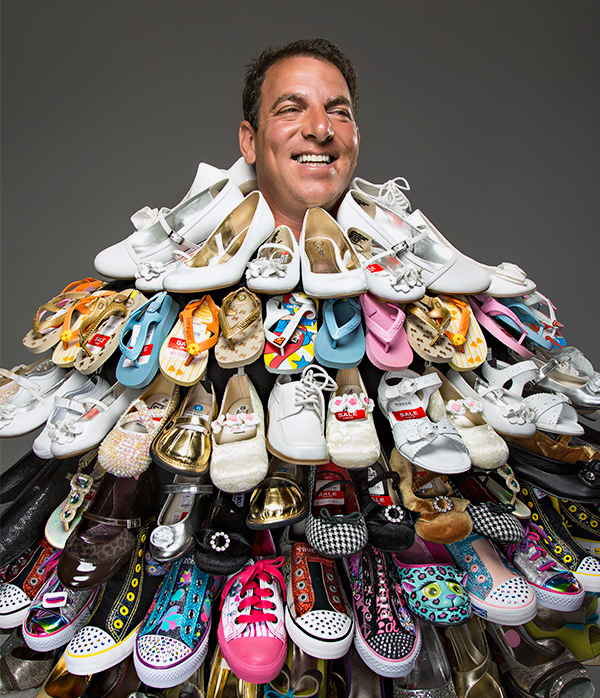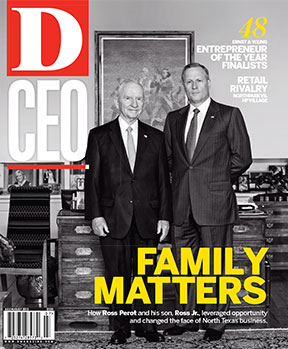Consolidated Clothiers’ website shows a photo of the front of the resale clothing company’s Addison headquarters. It’s a squat, single-story, brick-faced building that abuts a large warehouse, where CEO Whit Fadal oversees a constant stream of inventory—upwards of $200,000 worth of apparel items per day—that he buys on the cheap from top-line department stores and resells to retailers like TJ Maxx and Ross. In the photo, a monument in front bears the company’s name, but when you actually drive up to the building in person, the monument is blank. Also not pictured online: a For Lease/For Sale sign. If you didn’t know better, it looks like Fadal’s company is going out of business.
But nothing could be further from the truth. Since Fadal began building his business more than 20 years ago while in college, starting by buying up whole sales racks from department stores and reselling the items to his then-girlfriend’s sorority sisters, Consolidated Clothiers has become one of four or five companies in the nation that can handle high-volume purchases of manufacturer and retail overstock. Fadal has developed a vast network within the industry, which helps land him access to big buys—like the 90,000 pairs of sandals that arrived in the warehouse the day I met with him. In a few days, if not a few hours, the sandals will be shipped off to a reseller.
Simply put, Fadal’s company takes the slack out of the clothing manufacturer supply chain. It is a business that thrives on high volume at high velocity. Slowdowns in sales, disruptions in distribution, or any burp in the market that prompts back-ups in department store backrooms creates opportunity for Fadal. It’s a niche that means that whenever he makes a purchase, the companies he buys from are already losing money. That allows Fadal to demand a purchase price of 10 cents on the dollar for each item he buys.
Fadal has always had a knack for creating opportunities. When he was a sophomore in high school, he wrote to the CEO of the subscription CD service Columbia House, asking if he could get his hands on the company’s customer returns. The CEO was impressed by the student’s bold request, so he offered Fadal a $500 line of credit and a stack of CDs, which Fadal went on to sell anywhere he could—his school’s hallways, on the street, or at local shops in his hometown of Waco.
It’s the same thing with Consolidated Clothiers’ headquarters. When he purchased his first warehouse, Fadal realized his company’s quick inventory made it nimble, and if he could find a buyer for his property, he could flip the building, make a buck, and easily move into a new location. Commercial real estate has since become a big part of his investments. On occasion, he has sold new property before his company even gets a chance to move in. Fadal admits this kind of constant deal-making is in his blood.
“If I had been born in a different country,” he says, “I’d be a street peddler.”







